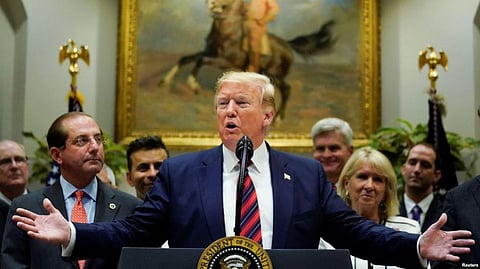
- Home
- न्यूजग्राम
- India
- World
- Politics
- Entertainment
- Culture
- Lifestyle
- Economy
- Sports
- Sp. Coverage
- Misc.
- NewsGram Exclusive
- Jobs / Internships

The United States has increased tariffs from 10% to 25% on $200 billion worth of Chinese imports. China on Friday said it "deeply regrets" the increased tariffs and will take the "necessary countermeasures" without giving any details.
The increases are going into effect amid talks between Chinese Vice Premier Liu He, U.S. Trade Representative Robert Lighthizer and U.S. Treasury Secretary Steven Mnuchin.
On Thursday the U.S. and Chinese trade negotiators ended the first of two days of talks aimed at saving a trade deal even as President Donald Trump said the new "very heavy tariffs" on Chinese products would go ahead.
The White House said Thursday evening that "Ambassador Lightizer and Secretary Mnuchin met with President Trump to discuss the ongoing trade negotiations with China. The ambassador and secretary then had a working dinner with Vice Premier Liu He and agreed to continue discussions tomorrow morning at USTR."
